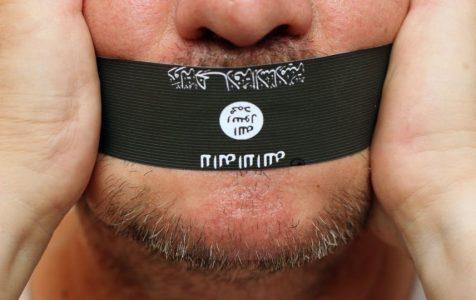
Islamic State’s genocidal crimes demand justice – how can it be done?
The forces of the so-called Islamic State (IS) are melting away from the regions they previously held in Syria and Iraq, and the group’s atrocities are disappearing from the media. But discussions about how to ensure criminal justice for the victims and survivors have only just begun.
To contribute to the debate over how to solve this problem, Pieter Omtzigt, Dutch MP and a special rapporteur on bringing IS to justice at the Council of Europe, and I have published a paper that takes stock of what’s been done so far. We explain there that the legal response to the IS atrocities has so far been sorely inadequate and painfully slow – and argue that a new solution desperately needs to be found.
The international community took its first steps towards justice in December 2016, when the UN General Assembly adopted a resolution establishing a mechanism to collect and preserve the evidence of the atrocities perpetrated in the Syrian civil war since 2011, including the crimes committed by IS. Then, in September 2017, the UN Security Council adopted resolution 2379 to set up an investigative team to collect evidence of IS atrocities in Iraq. But these were only preliminary moves, and they can only achieve so much.
The Syrian civil war is nowhere near over, and the deadlock at the UN Security Council is blocking any steps to clear the way for examining the myriad crimes committed on the ground by all manner of actors. To avoid any further delay, IS’s crimes in Syria should be prosecuted separately from other actors’ atrocities – but again, the question of who or what should take charge of the process remains open.
The prospects of justice for the crimes perpetrated in Iraq are slightly better, but the UN’s current proposals are still no guarantee. Resolution 2379 identified the Iraqi courts as the primary place to prosecute IS fighters, but without any adequate assessment of the court system’s capacity. The assessment of the Iraqi courts is yet to be undertaken by the UN team. A lot will have to be done to ensure that they’re up to the job.
Then there’s the problem of IS fighters who come from countries other than Syria or Iraq, many of whom have already returned home. So far, very few returning fighters have faced prosecution in their countries of origin – but there is as yet no international mechanism at work to deal with them.
In our paper, we cast an eye over previous attempts to prosecute the perpetrators of mass atrocities to see if they can help suggest an approach to solving these problems and securing justice.
Hypothetically speaking, there are plenty of ways for the international community and individual states to use existing mechanisms to prosecute these atrocities. One option would be for the UN Security Council to establish a commission of experts and then an ad hoc tribunal, as was done after the mass atrocities perpetrated in the former Yugoslavia and Rwanda. Another is for the International Criminal Court (ICC) to take the lead. For it to do so, the UN Security Council could refer the situation in Syria or Iraq to the court, thereby giving it the territorial jurisdiction it currently lacks. But that wouldn’t be easy.
Since the ICC was established, the UN Security Council has successfully referred only two situations to the ICC: the situation in Sudan’s Darfur region in 2005 and the situation in Libya in 2011. A third attempted referral – of the situation in Syria – was blocked by Russia and China in 2014, before IS reached its zenith in the conflict.
But whatever mechanisms are considered, it’s important not to lose sight of the fundamental issue: many of the crimes committed by IS quite probably amount to genocide, including the too often overlooked atrocities the group has perpetrated against Christian minorities. We scrutinised the arguments for recognising the atrocities as genocide under Article II of the UN Convention on the Prevention and Prosecution of the Crime of Genocide, and concluded that the case for considering these atrocities as genocide is strong. Nonetheless, further inquiries will be needed to establish the legal basis for treating the atrocities this way.
IS is a new kind of enemy, and the challenges it poses demand a tailor-made legal approach. Since the group’s thousands of fighters come from a number of different countries, a specially set up international or regional tribunal is the best way to prosecute them. But whatever is done in the end, it will have to be a comprehensive response that puts the group’s victims and survivors first.
Furthermore, it cannot be forgotten that bringing IS to justice is not an end it itself. It is just the beginning and a way of addressing the bigger issue: namely, that the ideology of IS is nowhere near dead, and that its followers are still out there.
Source: Conversation





